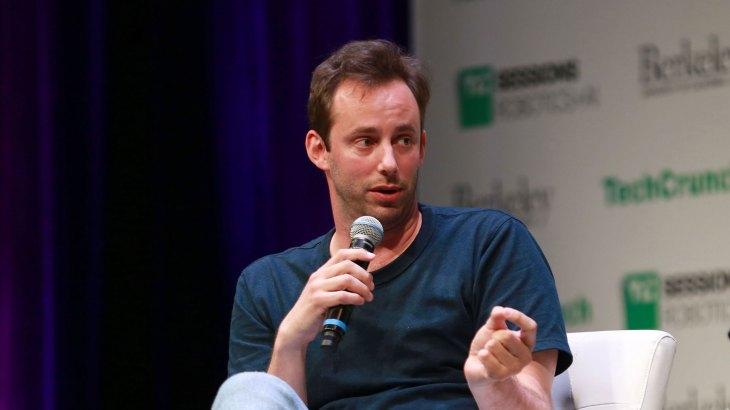Anthony Levandowski has become a notable figure in the technology field of driverless technology and innovation. His involvement in the development of Google’s self-driving program in 2009 is worth noting. He also completed the first journey across the USA in a driverless vehicle in 2018. Despite encountering challenges, he remains filled with innovative ideas and investments for the future.
Fortunately, he received a presidential pardon on the last day of Trump’s term in office. Currently, he stands as a pioneer, unfazed by past setbacks. Note that he is actively guiding both himself and the industry toward a prosperous future. In this article, we will explore Anthony Levandowski net worth, early life, and interesting details about his career.
Who is Anthony Levandowski?
| Quick Overview | |
|---|---|
| Net worth | $20 million |
| Date of Birth | March 15, 1980 |
| Place of Birth | Brussels, Belgium |
| Profession | Engineer |
| Sources of wealth | Waymo, Otto, and Pronto |
On March 15, 1980, Anthony Levandowski was born in Brussels, Belgium, to a French diplomat mother and an American businessman father. He moved together with his parents to California in his teenage years. At the University of California, Levandowski acquired a bachelor’s and master’s degree in industrial engineering and operations research.
What is Anthony Levandowski’s Net Worth?
At the time of writing, Levandowski’s net worth is roughly $20 million, according to celebritynetworth.com. Levandowski accrued his net worth through various ventures. Most prominent of these include his contributions to Google’s self-driving technology, co-founding companies like Otto and Pronto, and involvement in autonomous vehicle innovations.
What is the source of Anthony Levandowski’s Net Worth?
Anthony Levandowski’s journey from a Berkeley student to a pioneer in self-driving cars has been truly remarkable. During his sophomore year, Levandowski’s passion for engineering and robotics came to the forefront. He constructed the impressive 300-piece Lego BillSortBot, securing first place at the esteemed Sun Microsoft robotics competition.
Embarking on his entrepreneurial path with La Raison, an IT company, Levandowski achieved a notable $50,000 in earnings in the first year. Subsequently, he advanced to Google, where he played a key role in the development of the groundbreaking Street View system. Additionally, he introduced PriBot, the inaugural autonomous vehicle to grace public roads.
In 2016, Levandowski bid farewell to Google to pursue his passion for autonomous vehicle technology. Note that it gave rise to various projects and companies. Shifting his focus, he directed his attention to limited-use applications, such as quarries. Demonstrating his role as a true visionary in AI-driven vehicles, Levandowski accelerated his efforts in 2021. He reclaimed his position as Pronto’s CEO and unveiled their autonomous offroad division. Note that Anthony Levandowski’s financial ride has been a roller coaster. From $50 million to $100 million because of Google and Uber, and then $50 million down following a lawsuit in 2019.
Career
Levandowski initiated his prosperous tech career while still enrolled at Berkeley. During his freshman year, he established the intranet and IT services company La Raison. Note that it garnered $50,000 in its inaugural year. By his sophomore year, Levandowski had created the BillSortBot, a Lego robot designed for sorting Monopoly money. It helped him win first place in the Sun Microsoft robotics competition.
Continuing his entrepreneurial pursuits, Levandowski founded Construction Control Systems and developed the portable blueprint reader WorkTop. In collaboration with fellow engineers from Berkeley, he embarked on the construction of an autonomous motorcycle, affectionately dubbed “Ghost Rider.” This innovative creation appeared in the DARPA Grand Challenge in both 2004 and 2005.
Employment at Google
In 2007, Google enlisted the expertise of Levandowski, computer scientist Sebastian Thrun, and a team to create the Google Street View system. To accomplish the ambitious task of capturing 620,000 miles of roadways, Levandowski took charge by acquiring 100 Toyota Priuses. These vehicles had roof-mounted mobile mapping boxes. They had a design to facilitate the cars in driving around and generating 3D maps. The innovative “Topcon” box, utilized for this purpose, was crafted by Levandowski’s tech startup, 510 Systems.
Shortly following this breakthrough, Google entrusted Levandowski with the task of creating the PriBot, a self-driving Toyota Prius that marked the inaugural instance of a self-driving car on public roads. Through this accomplishment, Levandowski demonstrated the viability of pursuing self-driving automobiles. In early 2009, Levandowski and Thrun received approval to initiate their independent driverless car project at Google. Subsequently, they established the project, initially named Chauffeur, which was later rebranded as Waymo.
In the subsequent years, Levandowski’s 510 Systems constructed an additional five self-driving Priuses for the project. Following a triumphant test of a self-driving car in 2012, Levandowski remained engaged as a technical lead at Waymo until early 2016. Throughout his tenure at Google, he contributed to various projects, including Cardboard, Telepresence, Oblique Aerial Imagery, and Tiramisu. While at Google, Anthony Levandowski accumulated a total compensation of at least $120 million.
Companies Otto & Pronto
Following his departure from Google, Levandowski teamed up with Lior Ron, Don Burnette, and Claire Delaunay to co-found Otto, a company focused on autonomous trucking. Their team expanded with the addition of 11 former Google employees, collaborating to retrofit large trucks with self-driving systems. Otto achieved significant progress in just five months and Uber Technologies swiftly acquired him. Subsequently, Levandowski assumed a leadership role in Uber’s driverless car division. However, in 2017, he lost the job upon the revelation that he had accessed Waymo’s design server before leaving Google. The following year, Uber discontinued its autonomous trucking program.
In 2018, Levandowski initiated the establishment of another autonomous car company named Pronto, pouring an investment exceeding $8.5 million into the venture. Initially, the company focused on creating camera-based, self-driving retrofit systems for semi-trucks operating on highways. By 2022, Pronto underwent a strategic shift, concentrating on the development of self-driving vehicles tailored for specialized environments like quarries. Additionally, the company embarked on the creation of a new off-road autonomous division.
What Were His Other Projects?
In 2015, Levandowski ventured into a unique project by establishing the religious organization Way of the Future, to create a Christian God through artificial intelligence. The organization disbanded in 2021. In the subsequent year, Levandowski initiated the open-source wireless network Pollen Mobile. This network distributes antennae and other devices to consumers in the Bay Area. The autonomous vehicles developed by Levandowski’s company, Pronto also use it.
The Civil Lawsuit and Federal Conviction Involving Anthony Levandowski
In 2017, Levandowski became embroiled in the civil lawsuit Waymo v. Uber, where he allegedly downloaded 9.7 GB of confidential Waymo files and traded secrets before resigning. These files, containing blueprints and designs, were purportedly utilized by Levandowski upon joining Uber. The legal dispute was ultimately resolved in early 2018, with Uber settling by paying Waymo approximately $245 million in equity. The agreement also included Uber’s promise not to use Waymo’s technology.
Levandowski was charged with 33 counts of federal crimes. Additionally, the Department of Justice indicted him for stealing Waymo’s trade secrets in 2019. He later pleaded guilty to one charge and spent 18 months in prison. Additionally, Levandowski had to compensate Waymo about $756,500 as restitution and paid a fine of $95,000. After approximately half a year in prison, he received a presidential pardon early this year.
Bankruptcy
In 2020, a court ordered Levandowski to pay $179 million to Google for leaving the company to recruit employees for his startup, Otto. Consequently, Levandowski filed for bankruptcy protection. His business partner and Otto co-founder, Lior Ron, was also implicated.
In early 2022, a global settlement was reached among Levandowski, Google, and Uber, with Levandowski being obligated to pay between $25 and $30 million. However, the settlement faced controversy, particularly with the US Department of Justice and California’s Internal Revenue Service, who raised concerns about the tax implications for Levandowski’s estate.
Conclusion: Anthony Levandowski’s Net Worth
Anthony Levandowski’s net worth has undergone a rollercoaster journey, characterized by notable accomplishments, legal hurdles, and financial fluctuations. Starting with groundbreaking contributions to self-driving technology at Google and venturing into the establishment of his enterprises like Otto and Pronto, Levandowski has emerged as a pioneer in the autonomous vehicle industry. Nevertheless, his financial standing faced challenges due to legal issues, including lawsuits with Waymo and the Department of Justice.
Despite encountering considerable challenges, Levandowski’s determination is apparent in his ongoing engagement with pioneering projects, such as the establishment of Pronto’s off-road autonomous division. As of 2023, with a net worth of approximately $20 million, Levandowski stands as a symbol of the intricacies and uncertainties inherent in the convergence of technology, entrepreneurship, and legal obstacles.
FAQs
Q1: How did Anthony Levandowski accumulate his net worth?
Levandowski accrued his net worth through various ventures, including his contributions to Google’s self-driving technology, co-founding companies like Otto and Pronto, and involvement in autonomous vehicle innovations.
Q2: Did Anthony Levandowski participate in any philanthropic activities?
Details about Levandowski’s philanthropic activities are not available in extensive detail. His publicized ventures have primarily focused on technology and autonomous vehicles.
Q3: How did legal settlements impact Anthony Levandowski’s net worth?
Legal settlements, including those with Waymo and Uber, have had financial implications for Levandowski. For instance, he reached settlements involving payments to Waymo and faced bankruptcy protection.
Q4: What is the current status of Anthony Levandowski’s net worth recovery after legal challenges?
Despite setbacks, Levandowski’s net worth has stabilized around $20 million as of 2023, reflecting his ongoing involvement in innovative projects like Pronto’s off-road autonomous division.








